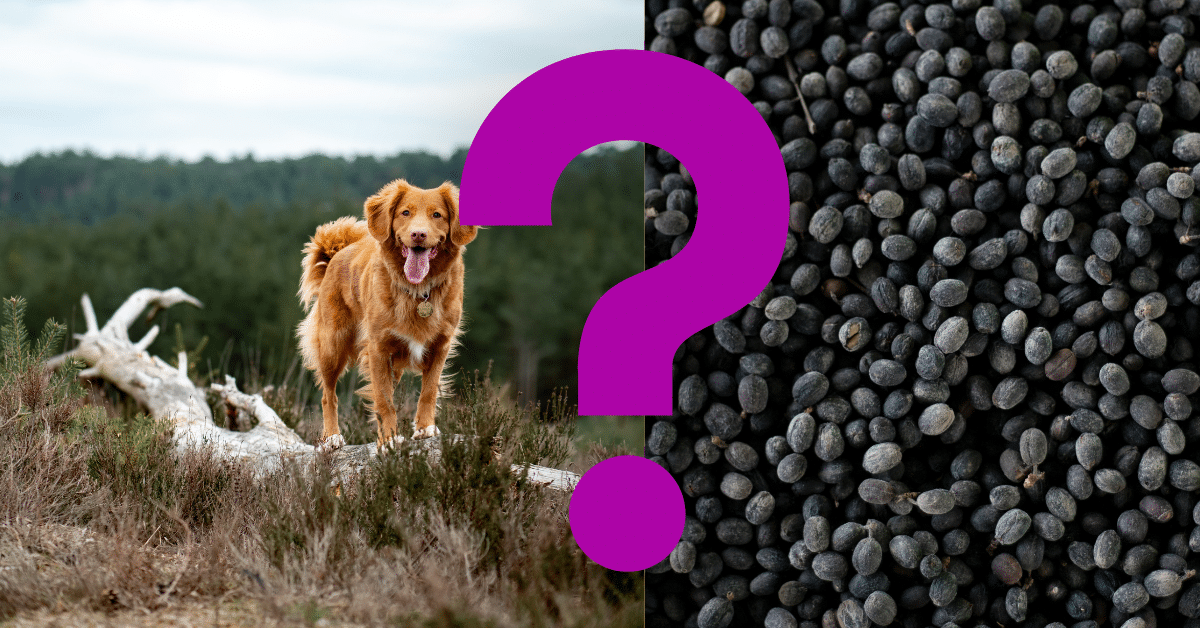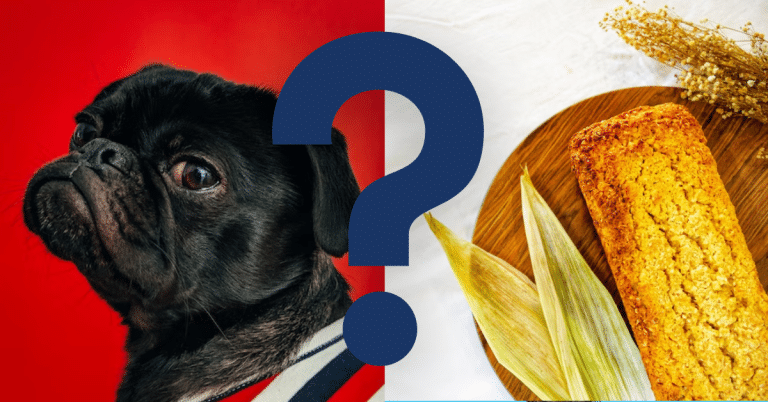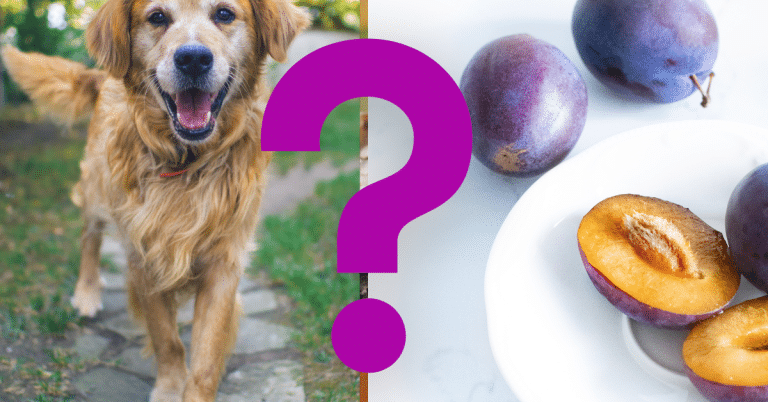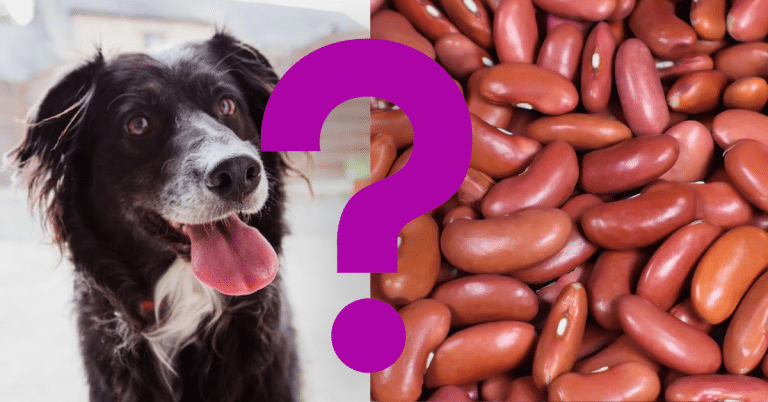Can Dogs Eat Black Beans? A Vet’s Opinion

Black beans are low in fat, but can you feed Black Beans to your dog?
Black beans are not harmful to dogs, so they can consume them within limits. However, it’s crucial to remember that canines have distinct nutritional requirements from people and that most of their diet should be high-quality dog food.
Benefits Of Black Beans For Dogs
Here are some additional details on the benefits of giving black legumes to dogs:
- Black beans are an excellent supply of plant-based protein necessary for the body’s development and maintenance of muscles, tissues, and cells. Protein is particularly crucial for active canines and those with high energy requirements, such as working or sporting pets. Additionally, protein supports a robust immune system, which can help shield your canine from illnesses and infections.
- High in fiber, black legumes can aid in regulating digestion, encouraging digestive regularity, and preventing constipation. Fiber also prolongs the feeling of fullness in canines, which is advantageous for overweight or prone to overeating pets.
- Black beans are a good source of iron, magnesium, potassium, vitamins B and K, and other minerals. These vitamins and minerals can support a dog’s general health and well-being. For instance, magnesium is necessary to keep strong bones and teeth, while the iron is necessary to produce healthy red blood cells. Vitamin K is necessary for blood clotting, and potassium is necessary for healthy muscular performance.
- Low in fat: Dogs who are overweight or have a history of gastritis may benefit from eating black beans because they are on a low-fat diet. The chance of getting pancreatitis, an inflammation of the pancreas, and weight growth are both increased by excessive dietary fat.
- The range can help to ensure that your canine receives a balanced and complete diet by providing them with a range of nutritious meals, such as black beans. Varied food can also stimulate your dog’s mind and help avoid boredom. To prevent digestive upset, offering new meals progressively and in small amounts is crucial.
- Minimal in fat: The minimal fat level of black beans is advantageous for dogs who need to control their weight. Excessive fat in a dog’s food can lead to weight and other health issues like heart disease and joint problems. By including black beans in a balanced diet, you can help your canine keep a healthy weight and lower the likelihood that he will experience these health issues.
- Nutrient-dense: A dog’s general health and well-being depend on vitamins and nutrients like folate, iron, and manganese, which are abundant in black beans. Black beans contain antioxidants like flavonoids and carotenoids that can help support immune system function and prevent tissue harm.
- Black beans have a low glycemic index, meaning they metabolize slowly and may assist in controlling blood sugar levels in canines. For dogs with diabetes or other diseases that impact the regulation of insulin, this can be particularly helpful. Black beans offer a gradual release of energy, reducing the risk of blood sugar surges and drops.
- Black beans are an excellent source of plant-based protein and fiber, which can support digestive health and give canines a feeling of fullness and satisfaction. Additionally, the fiber in black beans can help canines avoid constipation and maintain regular bowel motions.

How To Safely Give Black Beans To Dogs?
Here are some pointers for giving pets black legumes safely:
Basic and cooked: Giving your pup raw and cooked black beans is crucial. Please don’t give your pup canned black beans because they could have seasonings and extra sodium that are bad for pets.
Small portions: Add black beans progressively and sparingly to your dog’s food. Start with a small number of legumes and observe your dog’s response. You can progressively up the quantity if your dog tolerates the beans well.
Beans can trigger gastrointestinal distress in some dogs, leading to symptoms like gas, bloating, and diarrhea. Reduce the number of black beans you provide your dog, or cease giving them if you observe any of these symptoms.
Combine with dog food: To give some variety and nutrition to your canine’s regular diet, black beans can be added. However, because canines have distinct nutritional requirements than people do, it’s crucial to limit the number of black beans in your dog’s food to no more than 10%.
Please consult your veterinarian: It’s crucial to speak with your doctor before introducing any new foods to your dog’s diet. They can advise you on a secure and suitable serving amount and assist you in deciding whether black beans are an excellent addition to your dog’s diet. They can also advise you on any medical issues or dietary limitations that might impact your dog’s tolerance for black beans.
Will Black Beans Make A Dog Sick?
Dogs can consume black beans in moderation, and are usually considered safe. However, dog owners should be conscious of a few possible risks and issues. Constipation is one of the most frequent problems associated with giving black beans to canines. Some canines’ digestive issues can result in stomach issues like gas, bloating, and diarrhea. Additionally, black beans in cans might have seasonings and salt that are detrimental to canines. Giving your canine essential, cooked black beans prevents these additives. It’s crucial to watch your dog’s consumption of high-fat meals like black beans because they might be more susceptible if they have a past of pancreatitis or other digestive problems. Black beans and other legumes may cause irritation, hives, swelling, and respiratory difficulties in some sensitive canines. Finally, even though black beans are an excellent form of fiber and protein, dogs shouldn’t eat them as their primary food source. Over time, nutrient imbalances and deficiencies can result from giving your canine too many black beans or using them instead of premium dog food. It’s essential to seek advice from your veterinarian if you have any questions about whether you should give black beans to your dog or if your canine reacts poorly to them.

Vet’s Summary
In conclusion, when given in moderation and prepared correctly, black beans can be a wholesome and beneficial addition to a dog’s diet. But giving canines too many black beans or substituting them for premium dog food can result in digestive distress, nutritional deficiencies, and other health problems. Before introducing any new food to your dog’s diet, it is crucial to speak with a veterinarian to ensure it is secure and suited to their particular requirements.
Dogs’ gut health may be supported by including probiotics in their food. Probiotics are living microorganisms that can support healthy digestion and regulate the flora in a dog’s stomach. Black beans don’t naturally contain probiotics, but they can be a part of a healthy diet that includes probiotic pills or foods like yogurt or kefir high in bacteria. Probiotics may not be suitable for all canines or conflict with other medications, so it’s crucial to speak with a vet before introducing them to your dog’s diet.
Videos To Watch
Find out if beans are good for your dogs and puppies by taking a look at the video below:
Here is an easy-to-understand video telling you if beans are a good source of energy for dogs or not:






